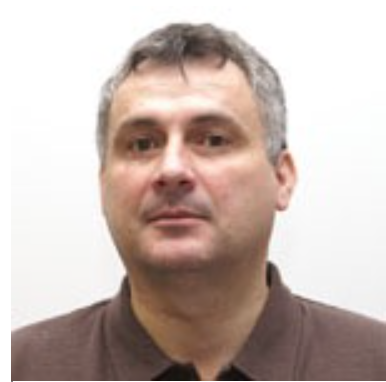'''演讲人: Jovisa Zunic (Professor at the Mathematical Institute of Serbian Academy of Sciences and Arts, Belgrade, and Senior Lecturer at the University of Exeter, UK)
of Serbian Academy of Sciences and Arts, Belgrade, and Senior Lecturer at the University of Exeter, UK)
时间: 4 月 29 日(周三)下午 14:20-16:20
地点: 张江校区软件楼 102 第二会议室
联系人:杨夙 suyang@fudan.edu.cn
Abstract:
Shape is an object property which has a big discrimination capacity. This is because the shape allows many numerical characterisations. Some of these numerical characterisations relate to the validation of certain intuitively clear shape properties (usually called shape descriptors) – e.g. shape convexity, shape elongation, shape compactness, etc. Methods for numerical validations, of such properties (i.e. shape descriptors) are called the shape measures. Some of shape descriptors have already assigned multiple shape measures (convexity, compactness, etc). Since shape descriptors have an intuitively clear meaning, the behaviour of the measures, assigned to them, can be predicted to some extent, which enables a priory estimate how a certain measure fits to the task performed. The problems is that the number of shape descriptors is not large, comparing with the number of generic shape descriptors (usually do not have a clear geometric interpretation). In this talk, some ideas/results about how to overcome such a drawback and how to expand the applicability of shape/descriptors will be presented.
Bio:
Jovisa Zunic is a Professor at the Mathematical Institute of Serbian Academy of Sciences and Arts, Belgrade, and Senior Lecturer at the University of Exeter, UK. His research interests are diverse and vary from a number of computer science disciplines to pure mathematics. Among them are pattern recognition, image processing, computer vision, neural networks, theory of algorithms, discrete and digital geometry, number theory, and combinatorial optimization. His results are published in leading computer science and mathematical journals. Overall, he has published in more than 35 journals, from the SCI list. He has an intensive research collaboration with researchers worldwide and had a number of visiting research positions at several prestigious institutions. Just to mention a few of them: Nanyang Technological University, Singapore (NTU), in 2014; Hong Kong University of Science and Technology (HKUST), in 2013; St. Petersburg Department of Steklov Institute of Mathematics, in 2012; Institute for Science and Technology – IST Austria, in 2012, Tokyo Institute of Technology, in 2007.'''


